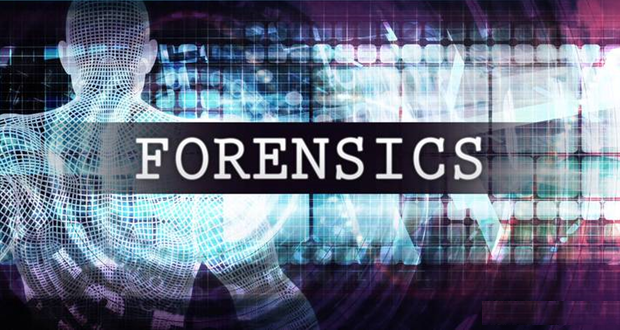Bachelor of Technology in Forensic and Criminal Investigation
Forensic and Criminal Investigation
Bachelor of Technology in Forensic and Criminal Investigation
Overview
This Forensic and Criminal Investigation program brings together knowledge and understanding with practical and technical skills. This is achieved through you performing forensic science investigations and practical assessments in our state-of-the-art virtual laboratories.
Forensic science is a critical element of the criminal justice system. Forensic scientists examine and analyse evidence from crime scenes and elsewhere to develop objective findings that can assist in the investigation and prosecution of perpetrators of crime or absolve an innocent person from suspicion. Forensic and Criminal Science is the application of scientific methods and processes in various legal and criminal-related settings. Forensic science is most commonly used in criminal investigations as well as in criminal convictions. The primary focus of forensic science is to uncover physical evidence through recognition, identification, testing and evaluation. Forensic science relies on various forms of science to analyze and interpret criminal-related data.
You will be supported throughout your time with us to realize your potential with individual and expert support. This Forensic and Criminal Investigation program includes units which underpin forensic science and scientific-practical skills. After successful completion of the course, graduates can go on to do a range of higher education courses including Forensic Science, Criminology, Psychology, Policing and Criminal Investigation. In addition, the requirements of the qualification will mean learners develop the transferable and higher-order skills that are highly regarded by higher education and employers.

Who is this qualification for?
The Bachelor of Technology in Forensic and Criminal Investigation is an ideal qualification for anyone who works or intends to work in any of the below-listed fields and seeks to develop career-specific skills and gain a solid qualification in Forensic and Criminal Investigation to support his/her position:
- Medical Examination Departments
- Cyber Security Organizations
- Medical Forensic Laboratories
- Police Departments
- Toxicology Laboratories
- Independent Forensic Science Consultants
- Public and Private Hospitals
- Universities of Health and Sciences
- Insurance Companies
- Private Investigation Organizations
- Corrections Departments
- Psychologist Organizations
What makes this course special?
The National Institute of Technology (NIT) is one of the world’s most successful and best-preferred applied (hands-on) learning brand. The National Institute of Technology qualifications place greater emphasis on self-employment and employer engagement and work readiness. The NIT-Namibia provides 70% practical and 30% theory teaching and learning methodologies coupled with various practical learning-focused activities that fully engage our students. The NIT programs in Forensic and Criminal Investigation are work-related qualifications for students taking their first steps into employment, or for those already in employment and seeking career development opportunities.

Why you must study at NIT?
At the National Institute of Technology (NIT), we know how important it is for career ambitious people to get the right education to start and further develop their careers. With today’s industry and employers demanding so much more than just a qualification to contain the effects of global competition and to attain a competitive edge, here are the main six (6) reasons why you must choose to study at NIT:
Work Readiness
NIT courses will give you real hands-on experience in pursuing your education. It is what is called learning by doing it or action learning. Based on a 70% practical (action learning, action research, projects, reflective thinking, critical thinking, etc.) and 30% theory teaching and learning and assessments methodologies, all the NIT students become work-ready (prepared) during their first year of study and graduate with strong work ethics, analytical, problem-solving, communication and entrepreneurial skills which are the major factors that employers are looking for in their recruits.
Employability
NIT’s higher vocational, technical and professional courses prepare students for employment and self-employment. The NIT courses develop a student’s employability skills as they offer the experience of real-life practical tasks and work placements. NIT’s qualifications are generally well-regarded by employers as the courses enable students to develop useful hands-on skills in respective fields of study and in critical areas such as problem solving, time management, entrepreneurial, communication, work behavior, visionary and focus minded, team work, and project planning, execution to evaluation. The knowledge and skills you get from NIT programs will make you be sought after by employers locally and globally. NIT helps students to gain strong knowledge and skills that are essential to start and successfully run their own businesses and/or to be appreciated competent and productive employees that every employer would like to hire.
Relevant
NIT courses are designed and developed with the help of the employers, industrial experts, professional bodies, higher education experts, and lecturers. This keeps the NIT curriculum to be industry-driven and relevant for today and the future’s job market and self-employment. NIT’s qualifications provide students with industry-specific knowledge, skills, and competencies which make graduates’ work outputs to be relevant to their employers’ missions, visions, and goals.
Practical Teaching and Assessments
The NIT’s teaching and learning are based on the seven (7) major principles of teaching and learning through which theoretical knowledge is practically applied into various practical teaching and learning methods including action learning, projects supported by verifiable tangible pieces of evidence (outcomes), critical reflective thinking, case scenarios, job placements, industrial site visits, public lectures led by industrial industry experts, etc. The assessment for NIT courses is largely based on regular coursework and work experience, which makes them an ideal option for those who crumble under the pressure of exams. All the NIT programs are assessed through objective and rigor-based assignments and projects for which origination is examined through the Turnitin to prevent plagiarism. The outcome of these assignments must be in an implementable practical and quality standard.
Career and Education Progression
Employers value NIT’s qualifications as the courses are industry-centered and directed. In other words, unlike academic programs, the NIT courses give students the industry-specific knowledge and skills which makes them readily employable. This, combined with the problem solving, time management, entrepreneurial, communication, work behavior, visionary and focus minded, team-work, and project planning skills they gained throughout their learning process give the NIT graduates a strong competitive edge to progress in senior job positions and to further pursue their postgraduate professional degrees such as Masters of Technical and Professional Doctorate Degree programs at various reputable higher education institutions/universities.
Reputation and Prestige
- The industry relevance, practicality, career-specific, and quality of the NIT qualification will make you stand out and visibly be seen and noticed in a cloud of many academically qualified graduates.
- As more employers expect their new employees to have relevant practical skills and competencies than costly academic knowledge, NIT makes your CV and profile standout.
- NIT is known for stringent quality standards that govern the provision of its higher vocational, technical and professional courses. NIT is also known for its practical, relevance, and Industry driven courses.
- The above values, compounded with the work ethics, entrepreneurial and problem-solving skills you will learn and practice while studying at NIT will grant you the respect, reputation, and prestige within the industry sector you will work.
Qualification Purpose and Outcomes
Upon successful completion of the Bachelor of Technology in Forensic and Criminal Investigation, graduates should be able to:
- Manage and lead the Forensic Department responsible for analyzing evidence from computers and other forms of digital data.
- Manage and lead the team of crime scene investigators who deal with the process of crime scene investigations, fingerprint identification, and forensic imaging and providing the details to police departments and other agencies.
- Manage and lead the Forensic Entomologists who determine the time of a person’s death by studying and examining insects appearing on the body.
- Manage and lead the Forensic Anthropologists to gather and interpret evidence to assist in the identification of human remains and to determine the cause of death.
- Manage and lead Handwriting Experts (Document examiners) who are responsible for examining documents related to a crime investigation scene by using a number of scientific processes and methods.
- Manage and lead Forensic Toxicologists who work in the laboratories and perform tests on bodily tissues and fluids samples to determine the presence of chemicals.
- Manage and lead Forensic Physiologists who provide physiological services and analysis for every facet of the criminal justice system.
- Manage and lead Forensic Ballistics Experts who examine the evidence related to firearms at the crime scene and afterwards has to explain the findings to the court of law.

How will I learn?
The NIT tutors/lecturers are equipped with various traditional teaching methods which are all used to create and develop Vibrant, Skilled, Competent, and Work-prepared Entrepreneurial Technicians, Technologists, and Professionals. The teaching and learning practices involve 70% practical and 30% theory methodologies by applying a wide range of action learning techniques stipulated in the course specification.

What does the course involve?
You will study a combination of theory, applied theory, and practical subjects across a broad range of units. To succeed, your effective time management and focus are both very critical. You will cover twelve (12) units. For each unit, you will do a main test, assignment, and examination in addition to an integrated project. These assessments do not include the informal tests, homework, and assignments that your lecturers will require you to do in each learning outcome.
To pass this applied qualification, it is critical that constantly monitor, formalize yourself with and operate alongside developments taking place within the Forensic and Criminal Investigation field by regularly visiting Forensic and Criminal Investigation organizations, reading news and articles, etc.
Assessment Methods
The NIT programs are assessed using a combination of:
- Informal Assessments
- Formal Assessments
Informal assessments are conducted by lecturers on each covered component of the unit outcome to weigh knowledge created into his/her students so that necessary teaching practices adjustments can be made as appropriate.
Formal Assessments are further classified into two parts:
- Formal Continuous Assessments which comprise of:
- Major Test
- An Integrated Project
- Formal Final Assessments which comprise of:
- Major Examination
- Unit Assignments

What are the Career Progression Opportunities?
Learners who have achieved the Bachelor of Technology in Forensic and Criminal Investingation can progress on to Bachelor of Technology (Honours) in Forensic and Criminal Investingation (Level 8). They can also competently serve in any of the below-listed job areas.
What are Articulation Opportunities?
The credit transfers from other programs offered by other institutions or other NIT programs will be dealt with according to NIT rules and regulations on Recognition of Prior Learning. Provided that an applicant has qualification accredited by NQA and verifiable through the NQF, the NIT rules provide for course by course credits as well as credit transfer by volume under certain conditions. Maximum credits that can be granted from none technical (hands-on) programs are 15% of the credits for a qualification. Maximum credits that can be granted from the technical (hands-on) programs of similar standards with those of NIT are 50% of the credits for a qualification.

What career opportunities can this lead to?
The Bachelor of Technology in Forensic and Criminal Investingation (Level 5) is an ideal qualification for anyone who works in any of the below-listed fields and seeks to develop career-specific skills and gain a solid qualification in Forensic and Criminal Investingation to support his/her position and anyone who wants to enter into or has just started a career in any of the following career areas:
- Digital Forensic Analyst/ Manager
- Digital Forensic Investigator
- Digital Forensic Technical Manager
- Intelligence Manager
- Crime Lab Manager
- Crime Scene Investigation Manager
- Crime Scene Investigation Manager
- Criminal Investigation Manager
- Forensic Psychology Manager
- Forensic Science Manager
- Forensic Science Manager
- Scientific Laboratory Manager
- Scientific Laboratory Manager
- Toxicology Manager
- And many others

What are the Fees?

Our fees include:
- Application/Registration Fees
- Tuition Fees
- Other Fees include Laboratory Fees, Study Manuals, industrial site tours, action research, etc. (where and if applicable).
For more information about our fees, please contact any of our Call Centre at any of our Campuses or the Marketing and Public Relationships Department.
Funding Opportunities
There are many funding options for the NIT’s accredited programs. Most of our students have over the past years been funded by their employers while others finance their studies on their own. Students can also apply for study loans with Namibia Students Financial Assistance Fund. NIT also provides scholarships and bursaries to students who meet requirements as stipulated in our annual prospectus.
Withdrawal/Cancellation
Any cancellations/withdraw or refunds are executed as per the NIT policies. For more details, refer to the Students Registration Agreement and the Withdraw Policy.

The Bachelor of Technology in Forensic and Criminal Investigation is a Level 6 qualification made up of thirteen (13) units. It is structured to be studied for one year through Distance Learning, Online, Virtual Campus, Part-Time, Full-Time, Or Blended Learning.
Unit for the Bachelor of Technology in Forensic & Criminal Investigation
The following is a compressive list of course units/modules you will cover in this program:
- 3DFCI401 Artificial Intelligence
- 3DFCI402 Digital Security Management
- 3DFCI403 Forensic Investigation Procedures in Practice
- 3DFCI404 Forensic Anthropology and Archaeology
- 3DFCI405 Cryptography
- 3DFCI406 Applications of Criminal and Forensic Psychology
- 3DFCI407 Forensic Fire Investigation
- 3DFCI408 Forensic Traffic Collision Investigation
- 3DFCI409 Practical Chemical Analysis
- 1STU401 Corporate Finance
- 1STU402 Corporate Strategy and Planning
- 1STU403 Forensic and Criminal Investigation Action Project
- 1STU404 Specialized Professional Forensic & Criminal Investigation Practice

Work placement/experience requirements
Although there are no specific mandatory elements of work placement/experience required for the Bachelor of Technology in Forensic and Criminal Investigation, students are expected to apply theories learned through various methods and carry out the practical learning activities as provided in the qualification specification.

Completion of Study Enrolment Form
Download and complete the Student’s Enrolment Agreement (SEA) form or obtain one from our Call Centre at any of our Campuses, print and complete it and submit it with proof of payment for the stipulated registration fees together to any of our Campuses before the stipulated application deadlines to avoid paying late application/registration fees. To be considered for approval, the completed enrolment agreement form must be accompanied by certified copies of documents as stipulated on the Student’s Enrolment Agreement (SEA) form.
Applicant must ensure that:
- The enrolment agreement form is properly and fully completed and that each page is initialed and signed;
- He/she provides all the required documentation such as certified copies of qualifications, Identity Card/Passport photos, Supporting letters from employers,
- He/she deposit registration fees into the respective Campus’ Bank Account provided on the enrolment agreement form and submits the original copy of the deposit as proof before being issued with an official receipt
- He/she is issued with an official Institutional Receipt, stamped with Official Company Stamp, and Signed by the Head of Call Centre for every payment made to the NIT.
- Please note that NIT does not receive cash payments,
- He/she obtains a written acknowledge letter confirming that his/her completed enrolment agreement form has been received
- He/she obtains the status of his/her application for studies within 30 working days.
- If admitted, an Admission letter issued by the Admissions section in the Office of the Registrar is obtained through the respective campus together with the timetable, program specifications, syllabuses, student’s details of student’s portal, student’s handbook, and rules and regulations, student card, and any other information.
When can I apply?
NIT has a whole year circle of accepting new applications from students from all over the world. However, please take note that applications for the First Semester which starts in January/February each year are only considered up to March of each year. This period includes late registration. Unsuccessful applications for First Semester and applications that are received late are considered for the Second Semester which starts in July each year.
The following are two (2) annual teaching and learning intakes for students to register to study on this program at NIT:
- January/February – June
- June/July – November
Applications must be made in-time to avoid late registration fees and to be disappointed if spaces are allocated to earlier applicants.

What must I have to qualify?
The entry to this qualification shall be based on:
The applicant must meet the NIT’s minimum the General Admission Requirements of NIT. Specifically, applicants must have passed 80% or all the courses (Units) work for Diploma in Forensic and Criminal Investigation (Level 6).
Qualifications obtained from other higher education institutions will be considered for entry to this program on subject to subject similarity and comparability basis and in terms of the NIT regulations provided that it is evaluated by the authentic quality regulatory agency.

Resources for Prospecting Students
- Qualifications Brochure
- Prospectus
- Online Application
- Application Form
Resources for Registered Students
- Students Handbook
- Institutional Calendar
- Learning and Assessments Policies
- Qualifications Specifications
- Assessments Schedules
- Recorded Lessons’ Presentations
- Virtual Classrooms
- Virtual Library
- Virtual Laboratories
- Study Manuals and Books

